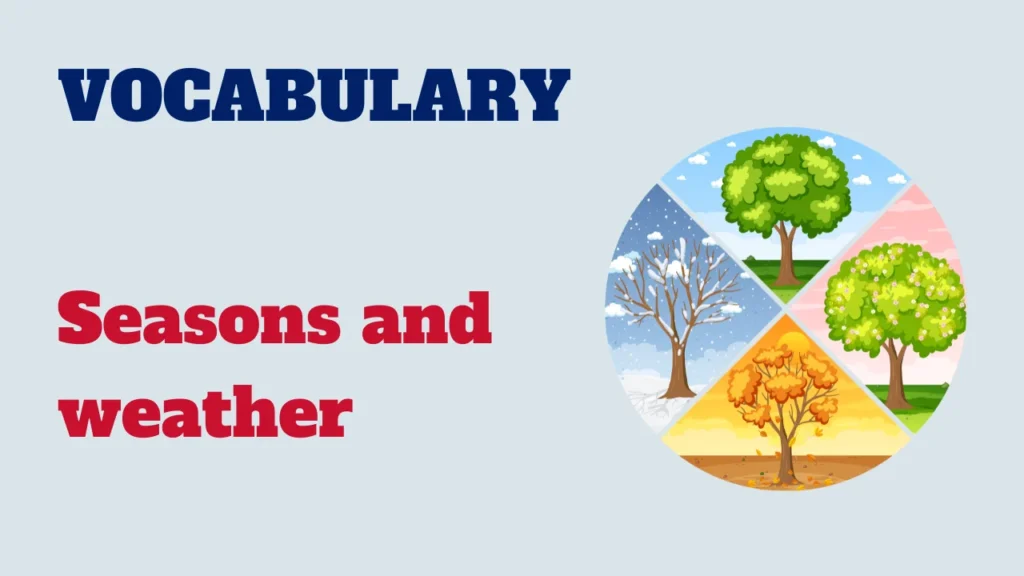Discussing seasons and weather is a common topic in everyday conversations.

Let’s explore vocabulary related to different seasons and various weather conditions to help you talk about these topics more effectively.
Seasons vocabulary
- Winter: The coldest season, often associated with snow, ice, and shorter days.
- Spring: The season between winter and summer, known for blooming flowers and warmer temperatures.
- Summer: The warmest season, characterized by longer days, higher temperatures, and outdoor activities.
- Autumn/Fall: The season between summer and winter, marked by falling leaves and cooler temperatures.
Seasons related vocabulary
Winter vocabulary:
- Cold days
- Rain
- Snow
- Umbrella
- Warm clothes
Spring vocabulary:
- Flowers
- Blossom
- Planting
- Garden
- Plants
Summer vocabulary:
- Hot weather
- Beach
- Vacation
- Travel
- Sunglasses
Autumn/ Fall vocabulary:
- Falling leaves
- Wind
- Harvest
- Pumpkin
- Acorn
Weather vocabulary
- Sunny: Clear sky with plenty of sunlight.
- Cloudy: Sky covered with clouds, blocking the direct sunlight.
- Rainy: Precipitation in the form of rain.
- Snowy: Covered with or characterized by snow.
- Windy: Having a strong wind or a lot of air movement.
- Stormy: Characterized by severe weather conditions, often with strong winds, rain, or thunderstorms.
- Foggy: Covered or filled with thick fog, reducing visibility.
- Hot: High temperatures, causing warmth or heat.
- Cold: Low temperatures, causing a chill or coldness.
- Mild: Moderate temperatures, neither too hot nor too cold.
- Freezing: Extremely cold temperatures, often causing water to freeze.
- Clear: Sky without clouds, providing unobstructed visibility.
- Overcast: Sky covered with clouds, but not necessarily stormy.
- Humid: High moisture content in the air, often feeling sticky.
- Dry: Lacking moisture, with low humidity.
- Breezy: Mild wind, creating a pleasant, gentle airflow.
Congratulations on expanding your vocabulary related to seasons and weather! Whether you’re making small talk, planning activities, or describing your surroundings, these words will help you express the current season and weather conditions more precisely. Practice using them in context to enhance your language skills. Stay tuned for more vocabulary lessons on our language-learning journey!
Learn English
Share this 👉 https://quickglish.net/ocrr



